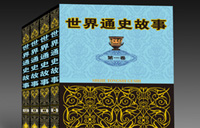
 'Taken 2' grabs movie box office crown
'Taken 2' grabs movie box office crown
 Rihanna's 'Diamonds' tops UK pop chart
Rihanna's 'Diamonds' tops UK pop chart
 Fans get look at vintage Rolling Stones
Fans get look at vintage Rolling Stones
 Celebrities attend Power of Women event
Celebrities attend Power of Women event
 Ang Lee breaks 'every rule' to make unlikely new Life of Pi film
Ang Lee breaks 'every rule' to make unlikely new Life of Pi film
 Rihanna almost thrown out of nightclub
Rihanna almost thrown out of nightclub
 'Dark Knight' wins weekend box office
'Dark Knight' wins weekend box office
 'Total Recall' stars gather in Beverly Hills
'Total Recall' stars gather in Beverly Hills
Playing with fate
Updated: 2013-03-12 10:16
By Mei Jia (China Daily)
|
||||||||
He shows a piece of paper in the railway station, saying he wants to see higher officials for a wrong done against him. Policemen consider him a "troublemaker" and put him on the train to his hometown.
Besides varying the tone, Liu paces Li's and Shi's stories differently: one intense and the other light and playful.
In the novel, Li takes a solemn view on life, while Shi laughs at life's absurdity. The author is skewed toward Shi's attitude in confronting the ridiculous in life, according to Zhang Wei, the book's editor.
|
|
| Tall tales tell kids all about history |
|
|
| Asian writers to make their marks |
Liu believes the tension in the structure offers visible comparison on what causes absurdity.
"But the most powerful is the invisible absurdity," he says. "The fate of the officials is changed after meeting a stranger once, and a woman's fate is connected with the country's political life."
Veteran critic Lei Da says: "Liu depicts Chinese officials well, with sharp observations."
A Peking University graduate in literature, Liu has been publishing influential works since the early 1980s.
A master of cold humor and laid-back satire, Liu shifts smoothly between colloquial narration and accented dialogues. He worries about the Chinese mindset and its deep-down logic that shapes the society.
An Boshun, an editor with Changjiang Literature and Arts Press, the book's publisher, feels the novel is even better than Liu's Mao Dun Prize-winning One Sentence Worth Thousands.
Liu says that through One, he mastered a free writing style that feels more like he's interviewing the characters who are speaking for themselves. In the new novel, he says, he pushes the boundaries even further.
"Sometimes Chinese officials are appointed from above," Liu says.
"That's why in the novel a random word from the top causes a mess in the bottom."
"That's also why a sesame seed can be turned into a watermelon, an ant into an elephant," he adds.
Contact the writer at meijia@chinadaily.com.cn.
Most Viewed
Editor's Picks

|

|

|

|

|

|
Today's Top News
Boston bombing suspect reported cornered on boat
7.0-magnitude quake hits Sichuan
Cross-talk artist helps to spread the word
'Green' awareness levels drop in Beijing
Palace Museum spruces up
First couple on Time's list of most influential
H7N9 flu transmission studied
Trading channels 'need to broaden'
US Weekly

|

|










